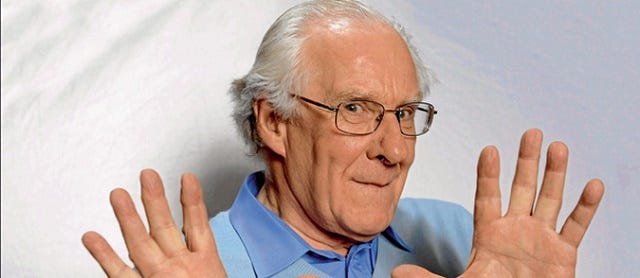Badiou: Bad Philosophy
There is more bad philosophy on the Continent than in the Anglosphere. An example.
Alain Badiou’s Manifesto for Philosophy (tr. N. Madarasz, SUNY Press, 1996) begins like this:
The dominant philosophical traditions of the century agree that philosophy, as a discipline, is no longer really what it used to be. It must be said that Carnap’s critique of metaphysics as nonsense is very different from Heidegger’s announcement of the supersession of metaphysics. It is also very different from the Marxist dream of a concrete realization of philosophy. Very different as well from what Freud ferrets out as illusion, indeed paranoia, from speculative systematicity. But the fact remains that German hermeneutics like Anglo-Saxon analytical philosophy, revolutionary Marxism and psychoanalytical interpretation concur to declare the ‘end’ of a millennial regime of thought. No further question of imagining a philosophia perennis perpetuating itself. (27)
Although I have skimmed the whole of Badiou’s book, this opening paragraph really is enough reason to return the book to the library. Part of what he is saying is that "Anglo-Saxon analytic philosophy" has declared the end of philosophy. This is simply false. It may be true for Richard Rorty, but Rorty does not represent analytic philosophy. It is true that Rorty rejects the existence of perennial philosophical problems, but this is not true of many or even most analytic philosophers.
When a book starts off with a grotesque falsehood, why continue reading? But if one does continue reading, one quickly finds oneself immersed in the usual Continental mishmash of persons and themes: Lacoue-Labarthe, Lyotard, Lacan, Deleuze, Gadamer, Celan, Derrida, Genet, Heidegger and the Jews and the Nazis, Kolyma and Auschwitz, Plato . . . . And all of this on one page! (28) What’s the point of all this name dropping? Are you a literary scribbler or a philosopher? Are you at a cocktail party or in your study?
Here is what I would say to Badiou et al. Define your terms. Make an assertion and defend it. Tell us what your thesis is. Say something definite. Try to be clear. Philosophy is hard enough even when one is clear. Avoid name dropping, that mark of the pseudo-intellectual. Go easy on the rhetorical questions. If you ever find something definite to say, employ the indicative mood.
One can re-read a page of this stuff half a dozen times and still not know what is being said or where the discussion is going. And I say this as someone who has read practically all of Nietzsche, Husserl, Heidegger, Sartre, Gadamer, a crapload of Derrida (who, according to John Searle, gives bullshit a bad name) and plenty of others besides. I know Continental philosophy from the inside. (Which fact allows me to slap down analytic know-nothings when that is necessary.)
This Badiou book seems to have all the typical French faults: the confusion of philosophy with a kind of Begriffsdichtung (conceptual poetry) in which practically anything can be associated with anything else; the historicist confusion of a theory’s being accepted or in favor with its being true (but cf. p. 140); the promiscuous over-deployment of universal quantifiers; the excessive use of rhetorical questions . . . .
As an example of the latter: "What in fact did Heidegger do other than presume that the ‘firm resolve’ of the German people as embodied by the Nazis was transitive to his thinking as a professor and hermeneutician?" (29) Rewrite that interrogative as a declarative and it still won’t make much sense. Declarative nonsense doesn't suddenly become sense when translated into the interrogative. "Transitive to his thinking"?
………………………………..
Claude Boisson comments,
Alain Badiou on himself:
« le philosophe français vivant le plus traduit, lu et commenté dans le monde » (2009)
and, again talking to himself:
« Vous [Badiou, à Badiou] êtes devenu le philosophe français vivant le plus traduit et le plus demandé, et de loin ». (2008)
Badiou apparently likes to quote his own works and was the advisor for a doctoral dissertation devoted to his own thought.
Sources:
My French is limited, but I take Badiou to be telling us that of living French philosophers he is the most read, the most translated, the most commented on, and the most in demand in the world.



